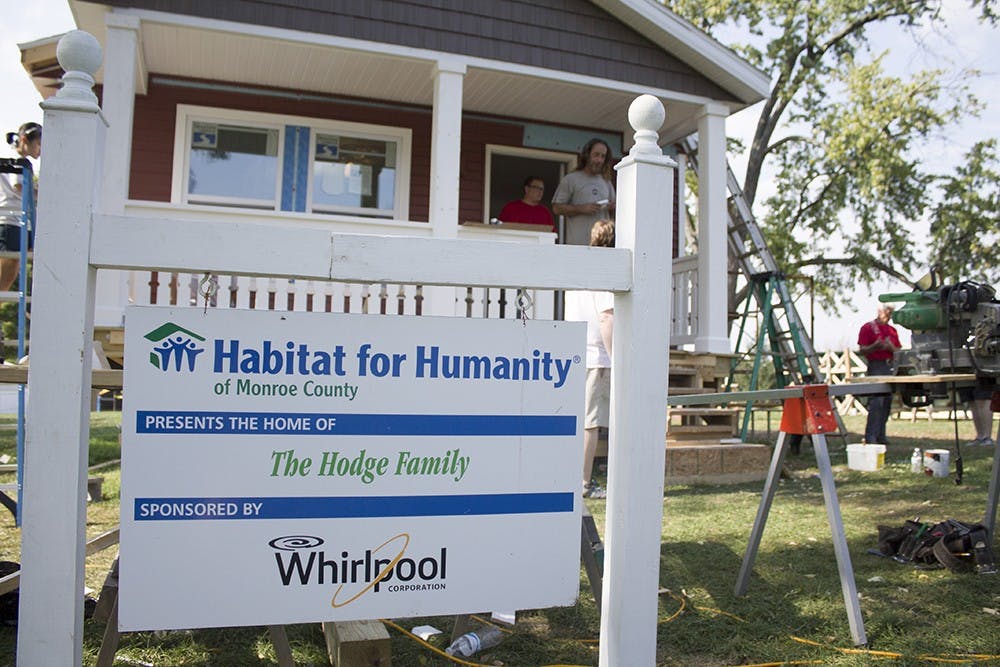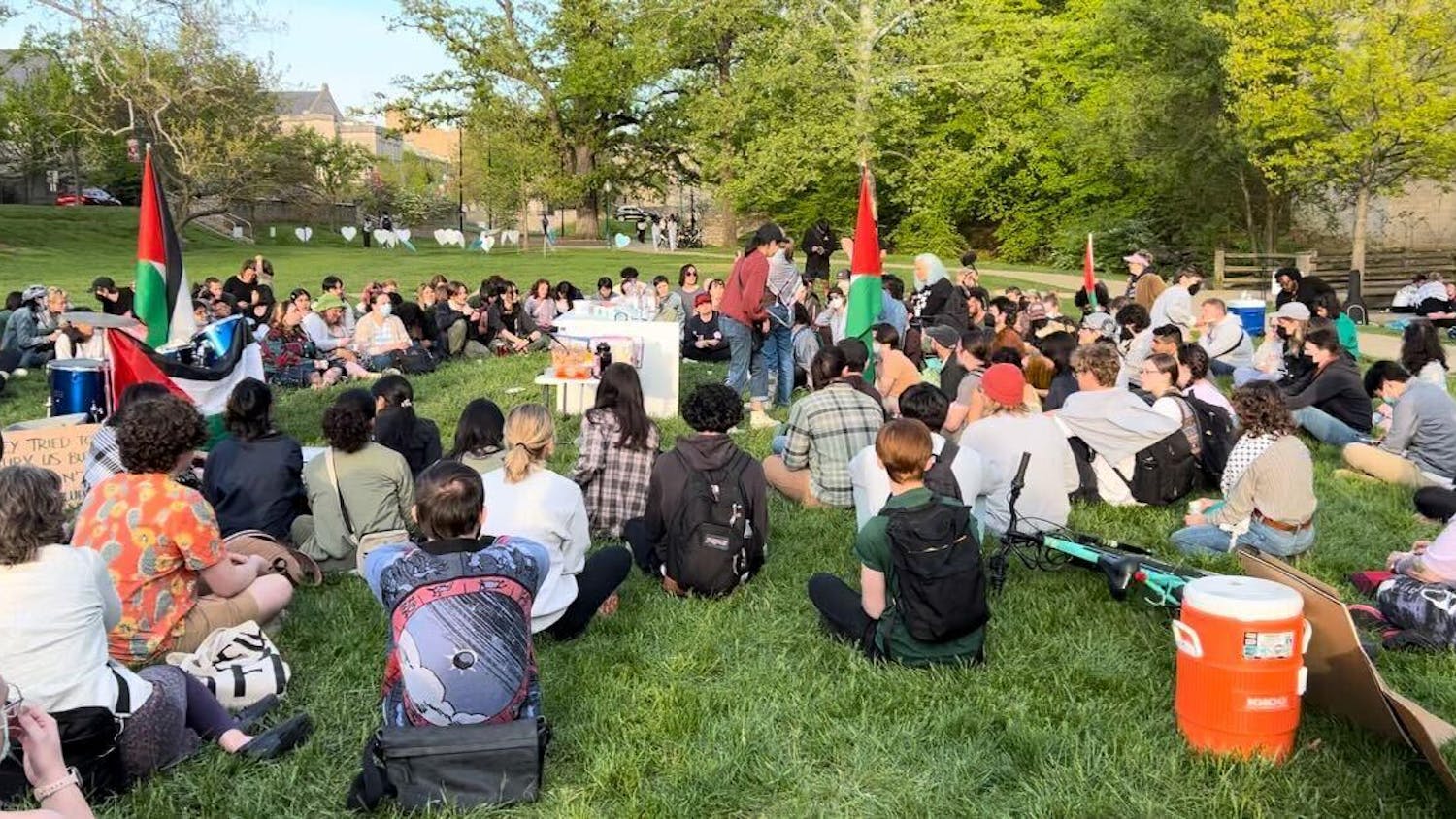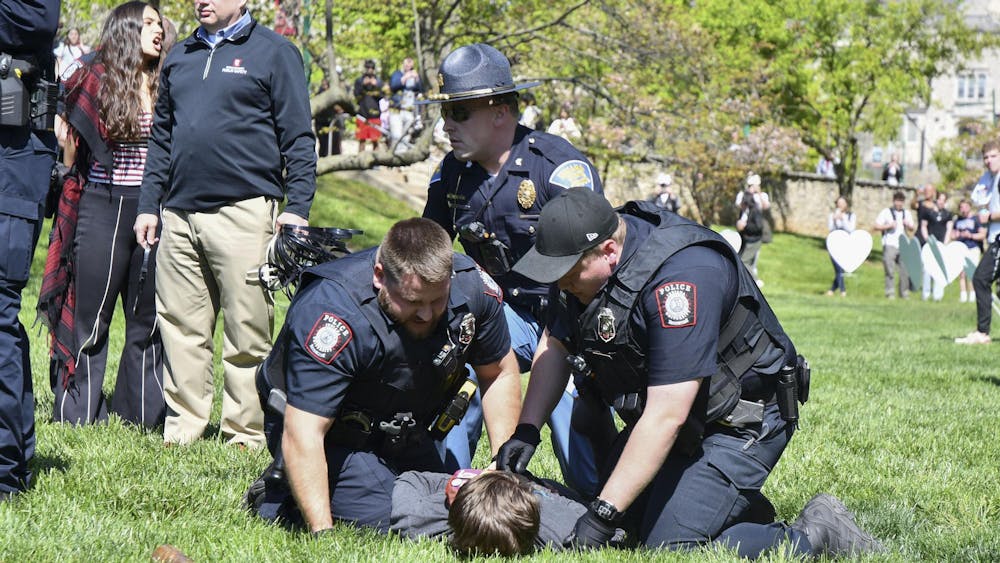While some campus organizations aim to help people across the world, IU Habitat for Humanity keeps its mission humble by working across the street.
By staying within the Bloomington area, Habitat for Humanity tries to avoid what is often called “voluntourism.” This volunteer practice can involve traveling to poorer areas of the world simply to build up a résumé or post selfies with underprivileged children for attention on social media.
Habitat for Humanity works with partner families who live in substandard housing, such as homes that have problems like black mold or a faulty foundation.
They build better homes and provide ways for these families to escape poverty. It is an international organization, but much of the work is done in each of its chapters’ local areas, senior and president Christina Zerfas said.
Although Zerfas has done work abroad, she said she thinks her most important contributions have been made in Bloomington.
“Every time I went international, I felt extremely underqualified,” Zerfas said.
When students volunteer in areas they know little about, the needs of the community might be misunderstood.
While communities are not always worse off from this volunteer help, they may not be any better off, either, Zerfas said.
“Making volunteering stylish, I do not think there’s a problem with that,” Zerfas said. “What becomes the problem is when people think they’re solving the world’s issues by making this their hobby.”
Often, Zerfas said, voluntourism is a phenomenon with good intentions gone wrong.
For example, a group may come in and build a well. At the time, the well is helpful, Zerfas said. When that well breaks down six months later, however, no one in the community has the skills to fix it.
With Habitat, partner families reach out for Habitat’s help, not the other way around.
This makes it easier for Habitat to give them what they need without just assuming it know what’s best, Zerfas said.
Zerfas said the organization does more than build houses. In addition to construction, their pillars include fundraising, advocacy and education.
Fundraising focuses making money to sponsor homes. Last year alone, Habitat raised about 20,000 dollars, and this year Zerfas said they hope to reach a new goal of 35,000 dollars.
Advocacy helps spread the word about the issues Habitat deals with to partner families, students and the community.
Education means finding long-term solutions. Instead of just setting up a few walls and leaving, Habitat provides access to financial literacy courses to reverse poverty for life.
The families must meet certain requirements, Zerfas said. In addition to living in substandard conditions, they need to have some ability to pay and be willing to put in 250 equity hours towards their new home.
“It’s a hand-up, not a handout,” Zerfas said.
IU Habitat for Humanity works with the Monroe County affiliate to help families in Bloomington and the surrounding area move out of substandard housing. Part of this stems from the fact that Monroe County has the highest poverty rate in Indiana, Zerfas said.
“Who are we to solve everybody’s problems when we still have them at home?” Zerfas said.
Senior volunteer coordinator Jessica Kim said she doesn’t often see volunteers who are involved to boost their own reputation, but when she does, they stick out.
Her first experience with Habitat for Humanity was when she went with a friend to an election. There, she said she saw someone who was only involved for personal gain.
Other new volunteers may not even show up after signing up to build, Kim said. If they do come, they only put in the bare minimum.
Kim said she was one who initially joined Habitat for her résumé. Her first build, however, changed her outlook on the work she was doing for partner familes.
“Once you hear how Habitat has changed their lives, then you realize what we’re doing has an impact,” Kim said.
For Kim, local volunteer work leaves more of an impression, which is why she said she likes Habitat for Humanity so much. Working for another community doesn’t provide the same sense of purpose.
“You get that feeling like, ‘Oh, I did good,’ but you don’t get to see that impact,” Kim said.
Senior Stewart Rivers said Monroe County citizens are affected in part by the University’s presence. Students who come to IU can afford to pay higher rental prices, so landlords charge higher prices.
This leaves the people who live in the county without options for affordable housing.
As vice president of IU Habitat for Humanity, Rivers is doing what he can to try to fix the issue.
“If we’re contributing to the problem, we have a responsibility to help the problem,” he said.
Through his work with Habitat, luxuries he took for granted, like a hot shower or place to sleep, have been put into perspective, he said.
One of the families he worked with had a seven-year-old son who Rivers said left a lasting impression.
“Without any prompting, the son said to me, ‘Thank you for my house,’” Rivers said. “I was really able to see the impact Habitat has for people.”
Because of interactions like these, Rivers said he understands how important his work with Habitat is.
“If you’re doing it for yourself, you’re doing it for the wrong reasons,” Rivers said.






